Field hospitals set up to treat North Carolina storm victims sit mostly empty
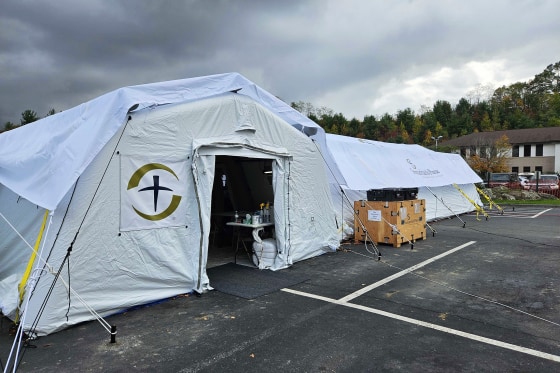
LINVILLE, N.C. — Health care companies and nonprofit organizations have erected fully equipped field hospitals in North Carolina, in a pre-emptive attempt to treat residents injured by Hurricane Helene.
But few patients had shown up Friday at the hospital set up in a large, white tent by Samaritan’s Purse, an aid organization founded by Christian evangelist Franklin Graham, near the remote mountain towns of Newland and Linville, some 140 miles west of Greensboro.
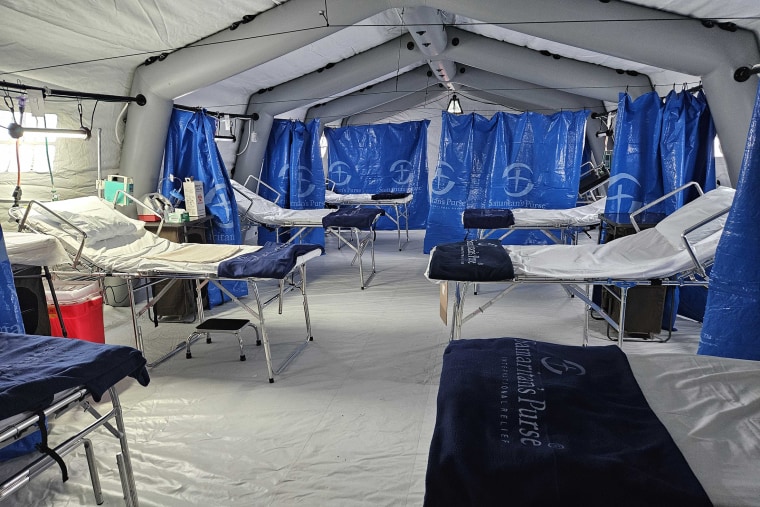
Nor was there much traffic at the well-equipped field hospital staffed by Atrium Health in tiny Tryon, about 50 miles south of Asheville, near the South Carolina border.
As the number of dead continues to rise, the Federal Emergency Management Agency said it has refrigerated trucks capable of holding several dozen bodies ready to deploy. More than half of the 215 people killed by Hurricane Helene as of Friday died in North Carolina, where extreme flooding destroyed homes, washed out roads and bridges, and left survivors to mourn their loved ones.
Wendy Henson, the lead nurse at the Atrium facility, said it has the capability to “support a local hospital in need if they are having an issue, and we can also replace a small-town hospital if it’s been taken out.”
She said the Atrium site has seen a few patients since opening earlier this week, including treating some for “general illness and some trauma.”
“But we are ready to go and we’re hoping to get the word out,” Henson said.
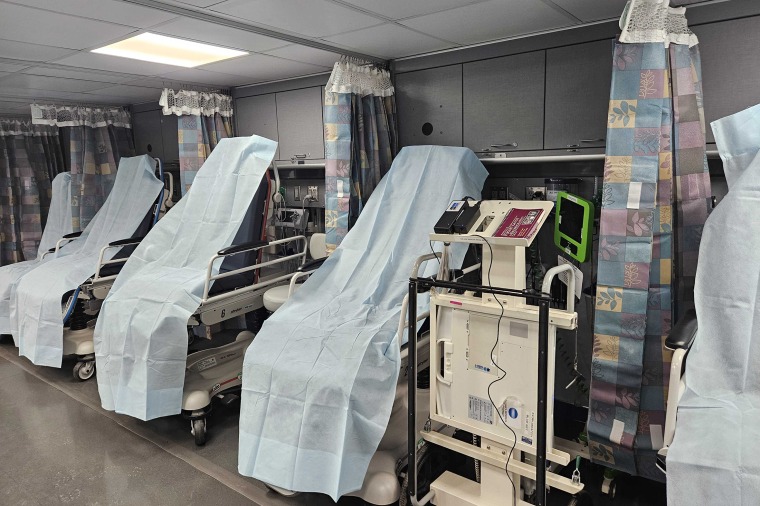
Henson said power outages and damaged WiFi and communications systems have made it difficult to do much outreach.
“I know that there are a lot of people that still don’t have power, still don’t have forms of communication,” she said. “We are desperately trying to find ways to reach them to let them know that we’re here, we’re ready and very capable of taking care of their needs.”
One idea they are considering, Henson said, is enlisting the help of local AM radio stations.
“We’ve got a team dedicated and working very diligently trying to get that done on the back end,” she said.
Nodding in the direction of the state-of-the-art equipment inside the mobile hospital parked in the center of a large field, Henson said, “We can do anything. We are a fully functioning operating suite.”
The Samaritan’s Purse facility was set up in the parking lot of the Charles A. Cannon, Jr Memorial Hospital in Linville.
Sasha Thew, an emergency medical response specialist with Samaritan’s Purse, said the location was chosen to help out the hospital if needed.
“We really set this up as an overflow to provide some surge capacity,” Thew said. “This area was designated to be the search-and-rescue deposit area.”
She said that if the hospital were to suddenly get overwhelmed with patients, they could step in.
“In case there was a surge, there were a lot of patients coming, the hospital asked us to make sure there was that capacity to have some overflow,” Thew said.
The first stop for patients would be a triage tent with eight beds, each of which has monitors and oxygen tanks.
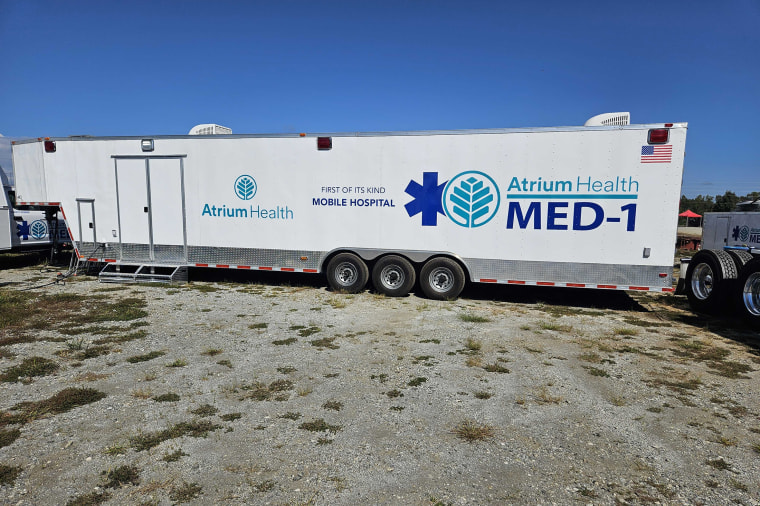
The more serious cases, Thew said, would either be sent to the hospital emergency room or taken to their 20-bed “inpatient tent,” which is divided into a men’s ward and a women’s ward.
Samaritan’s Purse also has a roster of on-call doctors who can be tapped at a moment’s notice, Thew said. But so far, that kind of expertise has not been needed.
Thew said the patients they’ve seen so far have had minor injuries, ran out of medications or lost them, or needed to refill their oxygen tanks.
Rebecca Rudisill, a Red Cross volunteer from nearby Lincoln County, landed in the field hospital as a patient when she fell and injured her leg while she was out having dinner at a restaurant.
“I’m upset because I came here to help, but I can’t,” she said.
While the field hospitals waited for patients, search and rescue teams across the area were continuing to look for survivors and victims. Officials said hundreds of people were still missing.
Earlier this week, a FEMA official said at a briefing that it was preparing for the worst by making sure it had access to refrigerated trucks where bodies can be stored if local morgues run out of room.
“It is not a signal of a large-scale fatality event, but it’s just a prudent precaution,” the FEMA official said. “In fact, we don’t yet have a destination location where that facility would be established, so it’ll go into staging for further movement with the state, in coordination with the state.”
Source: https://www.nbcnews.com


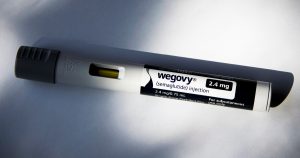



More Stories
Wegovy treated a serious form of liver disease in a major clinical trial
Some federal workers focused on ‘black lung’ screenings are reinstated but still face June termination
Bucks star Damian Lillard has a torn Achilles and is in doubt for next season